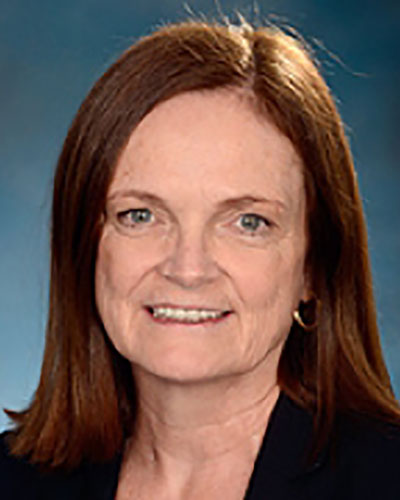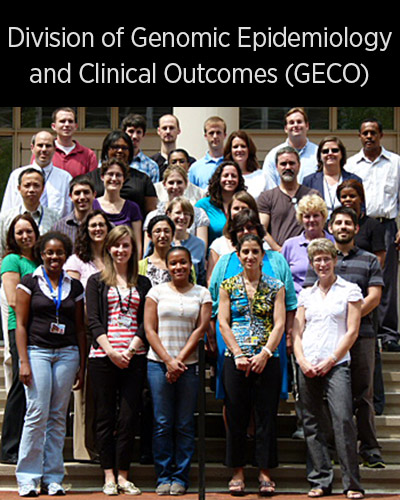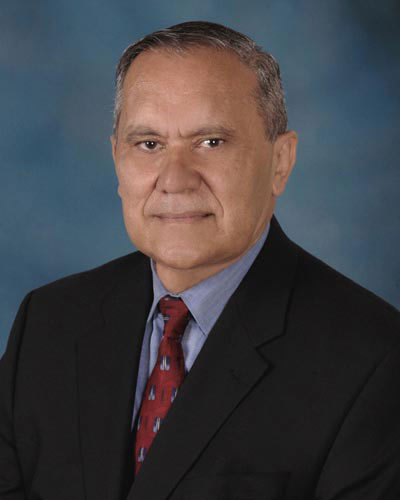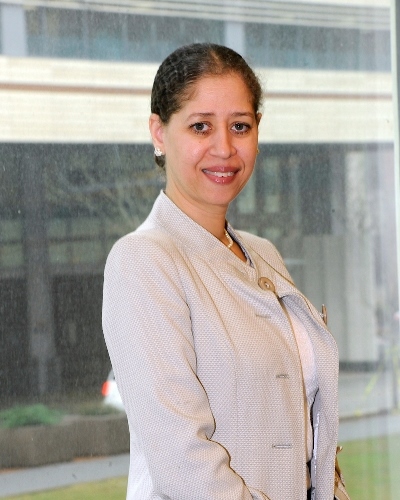March 16, 2016 | David Kohn

Appointment Continues School’s Commitment to Excellence and Innovation in Epidemiological Research
Jay S. Magaziner, PhD, MS Hyg, Professor and Chair of the Department of Epidemiology and Public Health (EPH) in the University of Maryland School of Medicine (UM SOM), along with UM SOM Dean E. Albert Reece, MD, PhD, MBA, announced today that Joanne F. Dorgan, PhD, MPH, Professor in the Division of Cancer Epidemiology within the Department of Epidemiology and Public Health, has been appointed Director of the Division of Cancer Epidemiology. Dorgan succeeds Division Director William A. Blattner, MD, co-founder and associate director of the UM SOM Institute of Human Virology, who retired on January 31, 2016.
In her new role, Dr. Dorgan will continue with her own research in cancer epidemiology, and will work to foster a diverse array of other cancer epidemiology research. She will recruit new faculty and will help develop new avenues of scientific research for the division.
Dr. Dorgan holds a joint appointment in the Department of Epidemiology and Biostatistics in the UM School of Public Health at College Park. An epidemiologist with expertise in molecular and nutritional epidemiology, she has a BS degree in biology (1974) from Cornell University, an MPH degree in nutrition (1976) from the University of North Carolina School of Public Health, and a PhD degree in epidemiology (1985) from the Johns Hopkins School of Hygiene and Public Health. She did her post-doctoral training in cancer prevention and control in the National Cancer Institute’s Cancer Prevention Fellowship Program, after which she conducted epidemiologic research at the Institute of Nutrition for Central America and Panama, the Maryland Medical Research Institute, the National Cancer Institute (NCI), and Fox Chase Cancer Center.
Dr. Dorgan arrived at UM SOM in 2013 as a Professor in the Division of Cancer Epidemiology, under the leadership of Dr. Blattner. She is co-leader of the Population Science Program at the University of Maryland Marlene and Stewart Greenebaum Cancer Center.
“Dr. Dorgan has spent her career delving into crucial questions of who gets cancer and why,” said Dr. Magaziner. “Her work has allowed us to understand much more about cancer and public health. She is the ideal person to replace Dr. Blattner, who himself has done so much to advance this field.”
Dr. Dorgan's research focuses primarily on identifying hormonal determinants of cancer, particularly breast cancer, and the hormonal mechanisms by which environmental and behavioral exposures affect cancer risk. While at the NCI, she was the Principal Investigator of the Columbia, Missouri, Serum Bank, a long-standing prospective cohort study of women. Since leaving NCI, Dr. Dorgan has continued to study this cohort to identify hormonal, environmental and nutritional influences on cancer risk.
In a recent prospective analysis from the serum bank, Dr. Dorgan and her NCI colleagues found that women with more extensive 2-hydroxylation of estrogens have a reduced risk of postmenopausal breast cancer than women with less. In another recent study, they found that anti-Müllerian hormone (AMH), a serum marker of ovarian function, is positively related to breast cancer risk. The ovarian surface epithelium and uterus are Müllerian-derived tissues, and Dr. Dorgan is currently leading an international collaboration to evaluate associations of AMH with ovarian and endometrial cancer risk. She also is beginning to identify metabolomic profiles associated with ovarian cancer risk.
Dr. Dorgan also conducts research on early life exposures and adult chronic disease risk in the Dietary Intervention Study in Children. Dr. Dorgan and her colleagues are continuing to conduct analyses and anticipate that many novel findings will come from this unique resource. In ongoing studies, they are evaluating associations of adolescent diet with breast density in young adulthood.
Dr. Dorgan has published numerous articles in peer-reviewed medical journals such as the Journal of the National Cancer Institute, American Journal of Clinical Nutrition, the Journal of Clinical Endocrinology and Metabolism, the Journal of Cancer Epidemiology, Biomarkers and Prevention, and Breast Cancer Research on these findings and others.
“Over her tenure at Maryland, Dr. Dorgan has improved our understanding of the links between hormones and cancer,” said Dean Reece, who is also the vice president for Medical Affairs, University of Maryland, and the John Z. and Akiko K. Bowers Distinguished Professor. “In her new role, she will also help the department move forward in exciting and important ways to better understand this terrible disease and its impact on public health.”
About the University of Maryland School of Medicine
The University of Maryland School of Medicine was chartered in 1807 and is the first public medical school in the United States and continues today as an innovative leader in accelerating innovation and discovery in medicine. The School of Medicine is the founding school of the University of Maryland and is an integral part of the 11-campus University System of Maryland. Located on the University of Maryland’s Baltimore campus, the School of Medicine works closely with the University of Maryland Medical Center and Medical System to provide a research-intensive, academic and clinically based education. With 43 academic departments, centers and institutes and a faculty of more than 3,000 physicians and research scientists plus more than $400 million in extramural funding, the School is regarded as one of the leading biomedical research institutions in the U.S. with top-tier faculty and programs in cancer, brain science, surgery and transplantation, trauma and emergency medicine, vaccine development and human genomics, among other centers of excellence. The School is not only concerned with the health of the citizens of Maryland and the nation, but also has a global presence, with research and treatment facilities in more than 35 countries around the world. http://medschool.umaryland.edu/
Contact
Department of Anesthesiology
(410) 328-6120 (phone)
(410) 328-5531 (fax)
swalsh@som.umaryland.edu
David Kohn
Director of Medicine and Science Communications
University of Maryland School of Medicine
Office of Public Affairs
dkohn@som.umaryland.edu
(410) 706-7590
Related stories

Thursday, May 15, 2025
Using Testosterone Gel to Treat Women Recovering from Hip Fractures Provides No Added Benefits, Clinical Trial Finds
Hip fractures, often a result of a fall, are the most serious type of osteoporotic fracture because they are accompanied by considerable pain, loss of muscle and bone strength, reduced mobility and independence with daily activities, and increased risk for future fractures and death. More than 200,000 American women every year experience hip fractures, and up to three-quarters of them never fully regain their ability to resume normal activities like walking, even after undergoing weeks of exercise rehabilitation. In a pressing effort to test new treatments, researchers conducted a clinical trial to see whether applying a testosterone gel with exercise could improve function and mobility in these patients.

Monday, August 12, 2024
Longtime Chair of Epidemiology & Public Health, Dr. Jay Magaziner, to Step Down as Chair
UMSOM Dean, Mark T. Gladwin, MD, announced today that Jay Magaziner, PhD, MSHyg, has decided to step down at the end of the academic year from his role as Chair of the Department of Epidemiology & Public Health after 17 years of dynamic leadership and academic achievement.

Tuesday, February 01, 2022
Study: Losing Excess Weight in Adulthood Reduces Risk of Developing Polyps that can Lead to Colorectal Cancer
Weight loss for adults, particularly those who are overweight or obese, may reduce their risk of developing a type of polyp that can lead to colorectal cancer, according to a new study led by researchers at the University of Maryland School of Medicine (UMSOM). Findings were published today in the journal JNCI Cancer Spectrum.

Thursday, March 05, 2020
Preventing COVID-19 (coronavirus) in Maryland Hospitals:
Hospital epidemiologists are doctors who prevent infections. World leaders in hospital epidemiology and infectious disease prevention, the physicians and scientists based in the Division of Genomic Epidemiology and Clinical Outcomes (GECO) at the University of Maryland School of Medicine are preparing our healthcare system for COVID-19 and COVID-19 transmission prevention.

Tuesday, September 10, 2019
Multicomponent Home-Based Treatments Improve Mobility in Older Adults After Hip Fracture, New Research Shows
Each year more than 260,000 older Americans are hospitalized for hip fractures, a debilitating injury that can severely and permanently impact mobility. Researchers at the University of Maryland School of Medicine (UMSOM) studied two types of home-based interventions and discovered that these treatments are effective in helping individuals regain their ability to walk, but not enough to do every day functions like crossing the street.

Thursday, September 05, 2019
UMSOM's Dr. Jay Magaziner Elected President of Fragility Fracture Network
Jay Magaziner, PhD, MSHyg, Professor and Chair of the Department of Epidemiology and Public Health at the University of Maryland School of Medicine (UMSOM), was elected to serve as president of the Fragility Fracture Network (FFN), a global network of professionals that help sets policy and care standards for treatment and secondary prevention of serious fractures impacting mobility, such as spinal and hip fractures.

Tuesday, February 12, 2019
UMSOM Scientists Call for Unrestricted Usage of Public Genome Data
Researchers at the Institute for Genome Sciences (IGS) at the University of Maryland School of Medicine (UMSOM) called for open access to genome data, stating that unrestricted usage is needed for progress in combating the world’s most serious diseases.

Thursday, September 27, 2018
University of Maryland School of Medicine Scientist Receives Prestigious Microbiome Award
Owen White, PhD, professor of epidemiology and public health, and Associate Director for Informatics at the Institute for Genome Sciences (IGS) at the University of Maryland School of Medicine (UMSOM), has received the 2018 Microbiome Pioneer Award. The prestigious honor is part of the Bioinformatics for the Microbiome Symposium organized by Stanford University. The microbiome is the name given collectively to the community of trillions of microbial organisms that live on and within our bodies.

Monday, July 23, 2018
In Memoriam: Edson X. Albuquerque, MD, PhD, Internationally-Renowned Pharmacologist and Toxicologist at UM School of Medicine
Edson Xavier Albuquerque, MD, PhD, an internationally-acclaimed toxicologist who had served on the UM School of Medicine faculty since 1974, has passed away.

Monday, June 18, 2018
Dr. Diane Marie St. George Promoted to Vice Chair of Academic Programs in the Department of Epidemiology and Public Health
Jay Magaziner, PhD, MS Hyg, Professor and Chair of the Department of Epidemiology and Public Health (EPH) at the University of Maryland School of Medicine (UMSOM), along with UMSOM Dean E. Albert Reece, MD, PhD, MBA, announced today that Diane Marie St. George, PhD, has been promoted from Director to Vice Chair of Academic Programs in the Department of Epidemiology and Public Health. The position was previously held by Patricia Langenburg, PhD, Professor Emeritus.

Tuesday, May 24, 2016
New Study: Diet During Adolescence Tied to Breast Density, A Risk Factor for Breast Cancer Later in Life
Adolescent girls whose diet is higher in saturated fats and lower in healthier unsaturated fats have higher breast density in early adulthood, which may potentially increase their risk for breast cancer later in life, according to a new study led by researchers at the University of Maryland School of Medicine. The research was published last week in Cancer Epidemiology, Biomarkers & Prevention.

Tuesday, March 22, 2016
Program in Health Disparities and Population Health at University of Maryland School of Medicine Moving Forward in Department of Epidemiology and Public Health
Jay S. Magaziner, PhD, MS, Hyg, Professor and Chair, Department of Epidemiology and Public Health (EPH) at the University of Maryland School of Medicine (UM SOM) and Dean E. Albert Reece, MD, PhD, MBA, announced today that the Program in Health Disparities and Population Health, formerly the Program in Minority Health and Health Disparities in Education and Research (PMHHD) led by the now-retired Dr. Claudia Baquet, has a new home in the Department of Epidemiology and Public Health.
